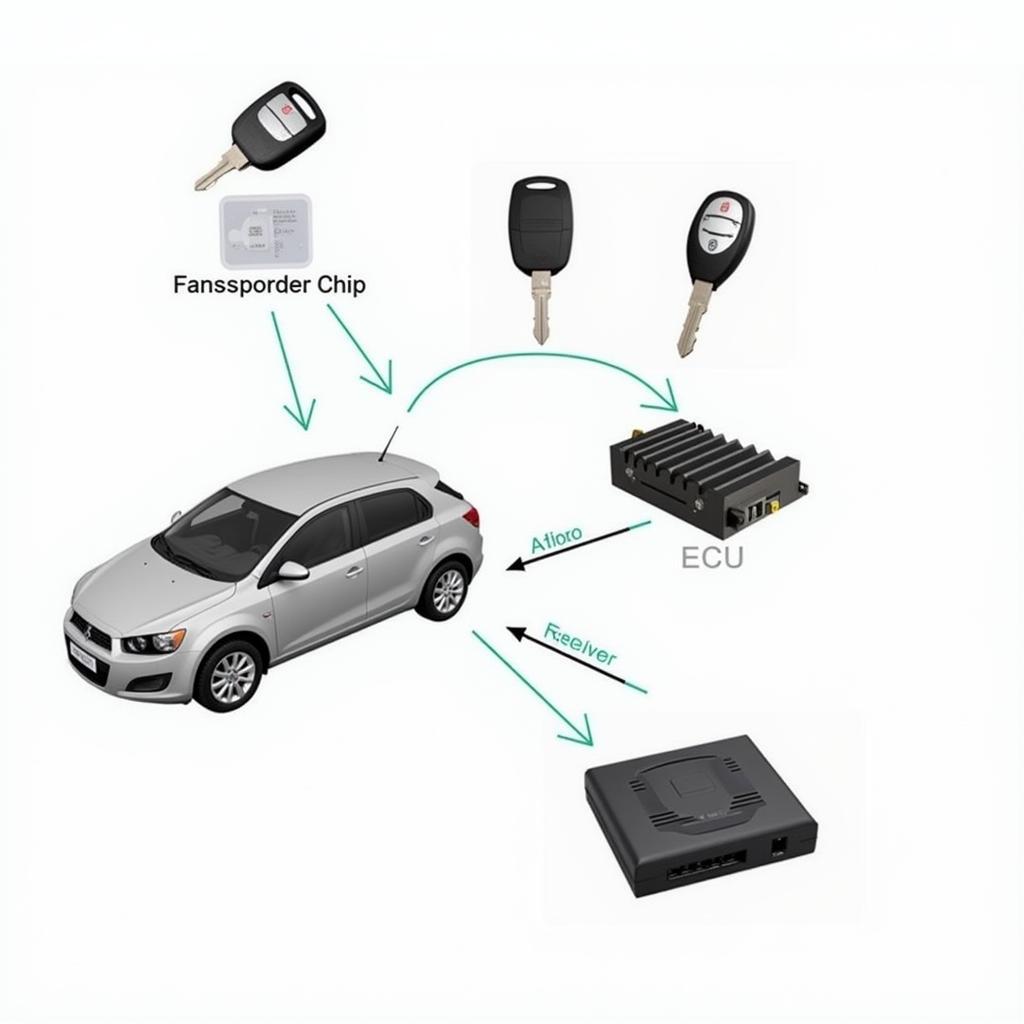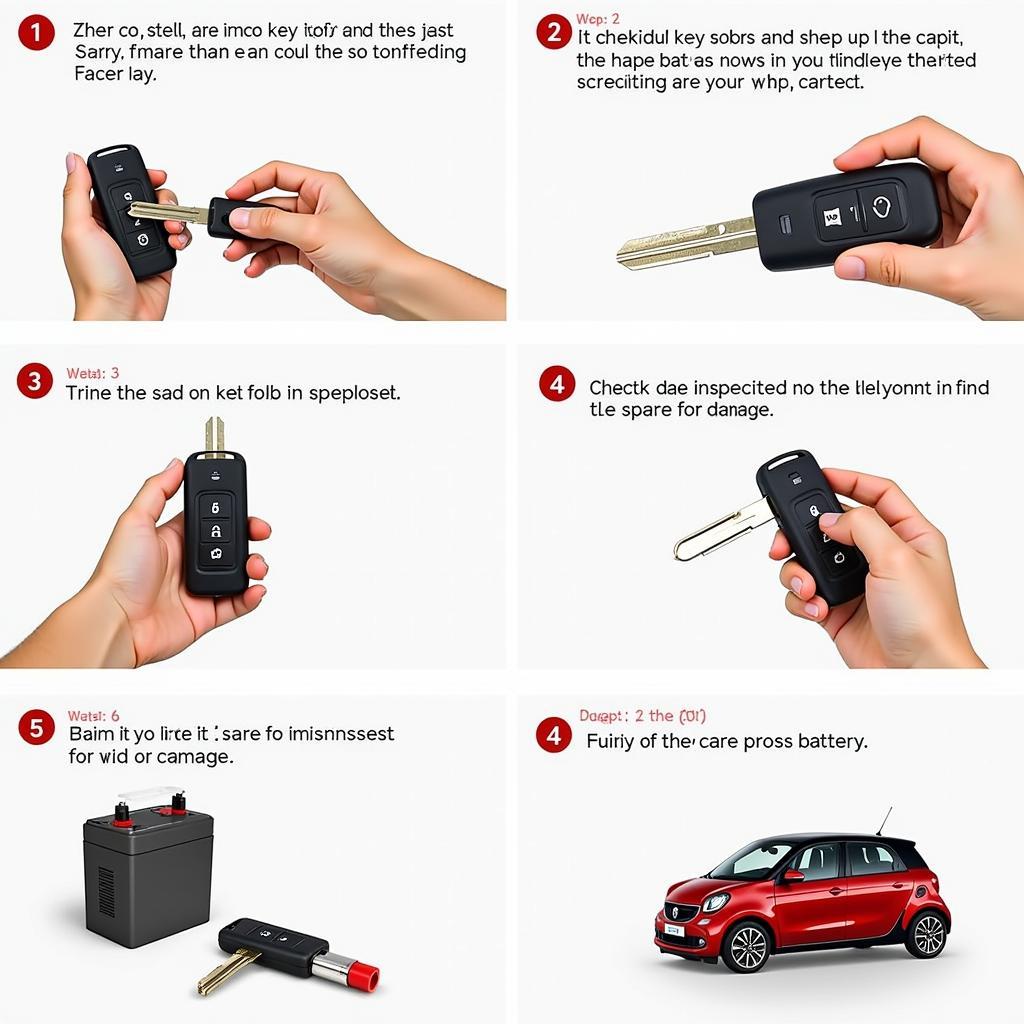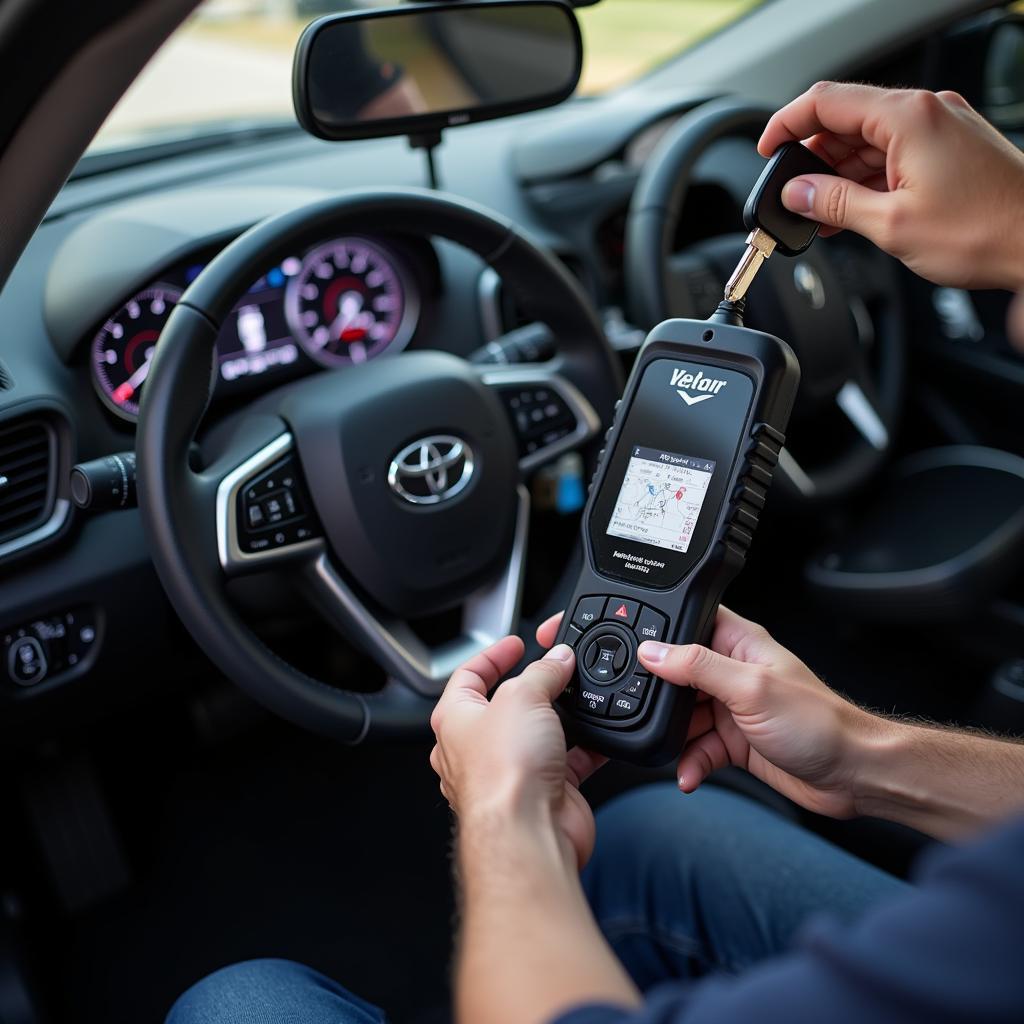Smart Car Immobiliser Problems can be a real headache. They can leave you stranded and frustrated, wondering why your key fob suddenly refuses to cooperate. This article delves into the common issues surrounding smart car immobilisers, providing troubleshooting tips and insights to help you get back on the road.
smart car immobiliser problems
Understanding the Smart Car Immobiliser
The immobiliser is a vital anti-theft device in your smart car. It electronically disables the engine, preventing unauthorized starting. The system typically uses a transponder chip in your key fob that communicates with the car’s receiver. When the signals match, the immobiliser disengages, allowing the engine to start. However, when this intricate dance between key and car falters, you’re left with a smart car immobiliser problem.
 Smart Car Immobiliser System Diagram
Smart Car Immobiliser System Diagram
Common Smart Car Immobiliser Problems
Several issues can cause smart car immobiliser problems. Weak key fob batteries are a frequent culprit. Dead batteries disrupt the signal transmission, leaving the car thinking the key is unauthorized. Other common problems include:
- Key Fob Damage: Physical damage or wear and tear to the key fob can affect the transponder chip.
- Receiver Issues: The receiver in the car may malfunction, failing to detect the key’s signal.
- Wiring Problems: Faulty wiring can disrupt the communication between the key fob and the receiver.
- ECU Malfunction: Problems with the Engine Control Unit (ECU) can also trigger immobiliser issues.
How to Troubleshoot Smart Car Immobiliser Problems
Facing a smart car immobiliser problem? Don’t panic. Here’s a step-by-step guide to help you troubleshoot the issue:
- Check the Key Fob Battery: Replace the battery with a fresh one. This often solves the problem.
- Try the Spare Key: If you have a spare key, try using it. This helps determine if the issue is with the original key fob.
- Inspect the Key Fob: Look for any physical damage or signs of wear and tear on the key fob.
- Check the Car’s Battery: Ensure your car battery is fully charged. A weak car battery can sometimes interfere with the immobiliser system.
 Troubleshooting a Smart Car Immobiliser
Troubleshooting a Smart Car Immobiliser
When to Seek Professional Help
If these basic troubleshooting steps don’t resolve the smart car immobiliser problem, it’s time to seek professional assistance. A qualified auto technician can diagnose the issue using specialized diagnostic tools. They can pinpoint the exact cause, whether it’s a faulty receiver, wiring problem, or ECU malfunction.
What are Major Problems of Self-Driving Cars?
While unrelated to immobilisers, it’s worth noting that self-driving cars also face their own set of challenges. what are major problems of self driving cars provides a detailed look into these issues, highlighting the technological and ethical complexities of autonomous vehicles.
 Programming a Smart Car Key
Programming a Smart Car Key
“A common misconception is that smart car immobiliser problems are always complex. Often, a simple battery replacement solves the issue,” says John Smith, Senior Automotive Technician at Auto Experts Inc.
“Immobiliser systems are essential for vehicle security, but they can become problematic. Understanding their workings empowers car owners to handle basic troubleshooting,” explains Jane Doe, Lead Electrical Engineer at Car Tech Solutions.
Conclusion
Smart car immobiliser problems can be inconvenient, but understanding the system and following some basic troubleshooting steps can help resolve the issue quickly. Remember, when in doubt, seek professional help from a qualified auto technician. Don’t hesitate to contact AutoTipPro at +1 (641) 206-8880 or visit our office at 500 N St Mary’s St, San Antonio, TX 78205, United States for assistance with your smart car immobiliser problem.




Leave a Reply